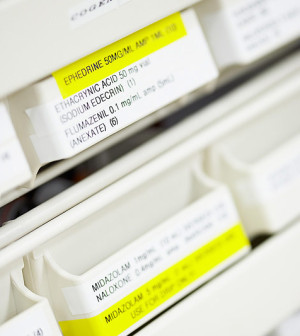- Could Your Grocery Store Meat Be Causing Recurring UTIs?
- Are You Making This Expensive Thermostat Error This Winter?
- Recognizing the Signs of Hypothyroidism
- 10 Strategies to Overcome Insomnia
- Could Artificial Sweeteners Be Aging the Brain Faster?
- Techniques for Soothing Your Nervous System
- Does the Water in Your House Smell Funny? Here’s Why
- Can a Daily Dose of Apple Cider Vinegar Actually Aid Weight Loss?
- 6 Health Beverages That Can Actually Spike Your Blood Sugar
- Treatment Options for Social Anxiety Disorder
Researchers Develop Potential Oral Treatment for Hemophilia

People with hemophilia have to endure painful injections every few days to stay alive, but a newly developed treatment may one day offer a simpler, cheaper and less painful alternative.
University of Texas at Austin researchers created an oral treatment for one type of hemophilia, which is a serious, genetic bleeding disorder. But, the treatment is still in the early stages of development, and it’s not yet clear when — or if — the encapsulated therapy will be in clinical trials.
About 400,000 people worldwide have either hemophilia A or B, both of which are caused by a missing protein in the blood.
In many parts of the world, access to treatment for hemophilia is limited by cost, the need for trained health workers, and the risk of complications associated with injection drug therapy.
The new capsule has nanoparticles that carry a protein therapy to treat hemophilia B. This type of hemophilia is caused by a missing or defective clotting protein called factor IX, the research team said.
The treatment is encapsulated, allowing it to pass through the stomach without being destroyed by gastric enzymes. It isn’t until the capsule reaches the small intestine that it begins to swell and degrade. As the capsule degrades, the treatment is slowly released, the researchers explained.
“While an oral delivery platform will be beneficial to all hemophilia B patients, patients in developing countries will benefit the most,” study lead author Sarena Horava said in a university news release.
“In many developing countries, the median life expectancy for hemophilia patients is 11 years due to the lack of access to treatment, but our new oral delivery of factor IX can now overcome these issues and improve the worldwide use of this therapy,” Horava said.
The capsule is still in development and further tests are required before clinical trials can be considered.
The researchers described their new treatment recently in the International Journal of Pharmaceutics.
More information
The U.S. National Library of Medicine has more on hemophilia.
Source: HealthDay
Copyright © 2026 HealthDay. All rights reserved.










